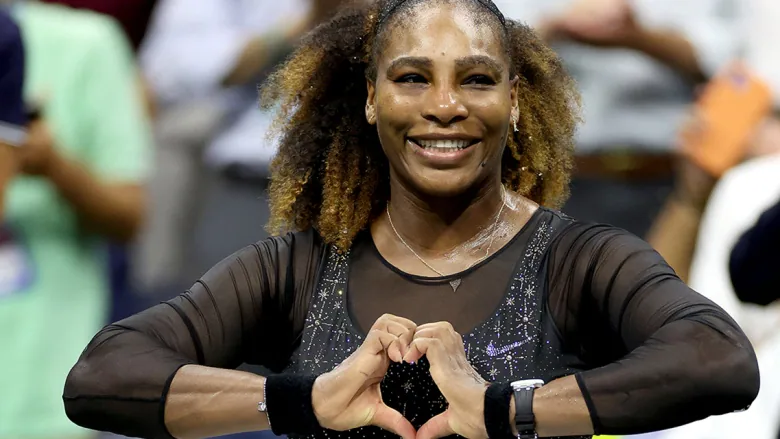
Serena Williams, one of the most accomplished athletes in history, has always been a beacon of strength, resilience, and confidence both on and off the tennis court. But in a recent, candid discussion, Williams opened up about something that’s not often associated with her public persona: her ongoing battle with the scales, and the complex relationship she has with her weight-loss journey.
In a post shared on social media, the 23-time Grand Slam champion spoke about her “love-hate relationship” with the bathroom scale. Williams revealed that while she’s always been in great physical shape, the pressure to maintain a particular weight and physique, especially post-pregnancy, has been an emotional rollercoaster. Her journey highlights an issue that affects not only elite athletes but also millions of everyday people struggling with weight and body image.
For Williams, the scale has been a source of anxiety, despite her legendary status in sports. “I’ve always been told that my body doesn’t fit the typical ‘ideal’ model,” Williams wrote. “People constantly tell me I should be leaner, smaller, or thinner, but that’s not what my body was made for. The scale doesn’t always reflect who I am or how hard I work. I’ve had days where I step on it and want to throw it out the window, but then I remember: this is my body, and it’s been through so much.”
The Pressure of Perfection
Williams’s post strikes a chord with many, especially women, who feel pressured to conform to an unrealistic body standard. Over the years, Serena has been open about her struggles with body image, particularly during and after her pregnancy. Having given birth to her daughter, Olympia, in 2017, Williams found herself navigating the challenges of returning to her pre-pregnancy shape while also facing the intense scrutiny that comes with being one of the world’s most visible athletes.
The journey of weight loss post-pregnancy is not a simple one, especially when you’re in the public eye. For Williams, it’s been about more than just the numbers on the scale—it’s been about her self-worth and health. “When I was pregnant, I was told I was too big, then after I had my daughter, I was told I needed to get my body back to the ‘Serena I used to be,’” Williams shared. “But I’ve learned that it’s okay to not fit into some pre-existing mold. There’s no such thing as ‘getting back to normal’—it’s about finding a new version of myself.”
While many people idolize Serena for her athletic prowess and dedication, what she’s revealing is that even the strongest among us experience self-doubt. The constant commentary on her body can’t help but be internalized. Yet Williams continues to push back against societal pressures and use her platform to spread messages of body positivity and self-acceptance.
A New Approach to Health and Fitness
Serena’s approach to fitness has always been intense and disciplined. However, her new perspective on health reflects a more holistic view of well-being that includes mental health, emotional health, and self-acceptance. In her post, Williams acknowledged that her past relationship with weight-loss methods involved a certain level of obsession with the scale, a fixation that she’s now moving away from.
“Some days, I’d be obsessed with what the number was on the scale. I’d eat, work out, and think about nothing else but that number. But now I focus on how I feel—mentally and physically,” Williams wrote. “The scale doesn’t measure strength, endurance, or happiness. It’s just a number. And for a long time, I let that number define me.”
Her shift away from focusing solely on weight is a poignant message for anyone struggling with body image. Williams is making it clear that real health isn’t about a number on a scale, but about how you feel inside and the strength you cultivate physically and mentally.
The Dark Side of Weight-Loss Culture
While Williams’s transformation is inspiring, it also sheds light on a broader societal issue: the toxic culture around weight loss. Celebrities and athletes are often expected to conform to an ideal image of perfection, and when they don’t, they face criticism. Serena’s story isn’t just a personal one—it’s a reflection of the societal pressures many women face daily. The expectation for women, especially mothers, to “bounce back” quickly after childbirth, to be both strong and slender, is a narrative that needs to be redefined.
Critics of the weight-loss industry and its obsession with numbers argue that it perpetuates harmful stereotypes and unrealistic standards. “The idea that a woman’s worth can be quantified by her weight is so damaging,” says Dr. Mia Thomas, a body image expert. “Serena Williams is at the top of her game—she’s already a powerful, fit, and accomplished athlete. To still be concerned with fitting into society’s narrow definition of beauty is something many can relate to.”
A Call for More Transparency
Williams’s candidness is refreshing in a world where celebrities often hide their struggles behind perfect public images. By sharing her vulnerabilities, she offers an authentic view of the pressures she faces, and in turn, validates the experiences of others. Serena Williams has long been an advocate for women’s rights, and now, she’s championing a new cause—one that encourages people to redefine what health, success, and beauty truly mean.
In the end, Williams’s message is clear: don’t let the number on a scale dictate your self-worth. Her fight for self-acceptance is a journey that many can relate to, and it’s a much-needed reminder that our bodies—no matter their shape or size—are worthy of love and respect. As Williams continues to break barriers on the tennis court, she is also breaking down harmful beauty standards and inspiring others to embrace their bodies as they are.





